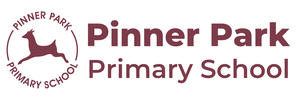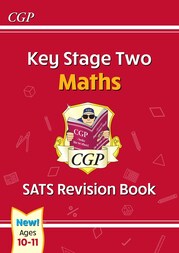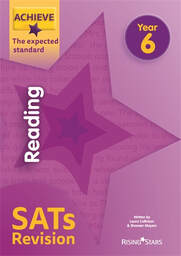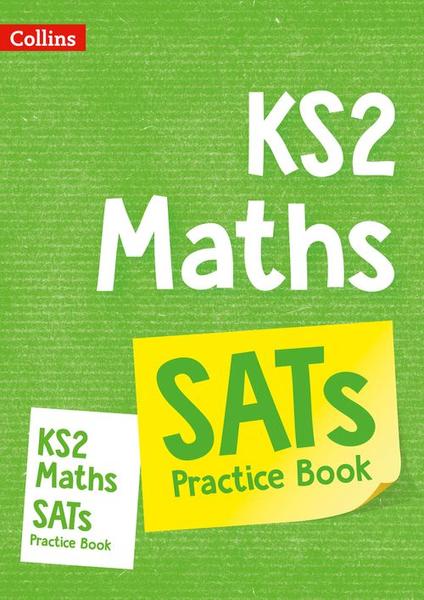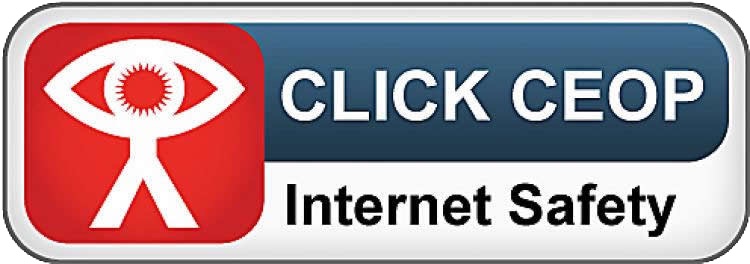Year 6 Parent Briefing - Video and Presentation Slides
|
|
| Year 6 Assessment | Parent Briefing | Presentation Slides | |
| File Size: | 2127 kb |
| File Type: | |
Introduction
In the Summer term, the Year 6 children will undertake some tests which are set for all Year 6 children across England and Wales. The information on this page helps to explain what you can expect and how you can support your children in the run-up to the tests.
About the tests
The tests take place during May each year and the assessments are spread across four days (this year, the tests are scheduled for Monday 9th May 2022 – Thursday 12th May 2022). We have some flexibility in how we organise the children for the tests (for example, whether to test in the school hall or the classroom).
Over the course of the week, there are tests covering the various areas of English and mathematics.
The Mathematics test
There are three papers in the mathematics test for Year 6.
Paper 1 – Arithmetic:
The first is an arithmetic paper that will test your child’s number and calculation skills. The test has nearly 40 questions and is worth 40 marks, making up just over one-third of the total marks available for mathematics. Some of the questions will require children to know some number facts, such as multiplication tables (and the related division facts); others test the use of calculation methods.
Towards the end of the paper there are some more challenging calculations such as those using fractions, or examples of calculations with larger numbers. For multiplication and division questions, 2 marks are available. If your child’s final answer is incorrect, they may still earn 1 mark for showing correct use of the formal long multiplication or long division methods. This ‘method mark’ is not available, though, if they use any other calculation method than the expected formal one.
Papers 2 & 3 – Mathematical Reasoning:
The questions on these papers, as with the arithmetic one, are set out in approximate order of difficulty, so children who are less confident with more challenging mathematics may not finish the whole paper. That’s fine; nobody expects a perfect score!
The reasoning questions often include some background information, such as solving problems to do with purchasing things in a shop, or dealing with measurements such as weight or area. These test papers cover the wider areas of mathematics such as geometry and statistics, as well as using arithmetic and number knowledge to solve problems. Several questions are likely to involve more than one step and so will be worth 2 marks.
The English tests
There are two tests for English: Reading; and Grammar, Punctuation and Spelling (GPS). The reading test has one paper and the grammar, punctuation and spelling test has two papers. Children’s writing is assessed over the year by the teachers – there is no test for writing.
Reading test:
The reading test lasts for 1 hour. During this time your child will be given around three different texts to read – often a mix of fiction, non-fiction and poetry – and a separate booklet of questions to answer about the texts. We will teach the children strategies for tackling this paper, such as answering the questions about each text one section at a time.
Several of the questions in this test will involve ticking the correct box, or picking out a single word from the text. These often require finding straightforward information directly from the text. However, in more complex questions – such as those asking for an explanation of the author’s choices – there will be several lines for free text, and up to 3 marks may be available for more detailed answers which use evidence given in the texts.
The Grammar, Punctuation and Spelling test:
Paper 1 – Grammar, punctuation and vocabulary
Paper 1 assesses grammar, punctuation and vocabulary. This is an area that has changed significantly in the new curriculum and questions will refer to both children’s knowledge of grammatical terms (such as pronoun and conjunction) and use of language in the right context. Some questions will also require children to put in the appropriate punctuation marks to clauses or sentences or to use a particular sentence structure.
Paper 2 - Spelling test:
Paper 2 assesses spelling and requires children to spell 20 words. Each word is read out as part of a sentence that is printed in the answer booklet. Your child will be asked to write the missing word into the gap. The words in the test will be based on the spelling rules taught across Key Stage 2, in increasing difficulty.
Marking and Results
All of the tests will be carried out in school and organised by your child’s teachers. Following this, they will be sent to be marked by a central agency and then returned shortly before the end of the summer term.
Once the results are returned to the school, they will be reported to you, as part of a wider school report at the end of the school year.
The way this is done has changed significantly from the national curriculum levels used in the past. Your child’s score will be converted to a scaled score to allow it to be compared to others’. Scaled scores will normally range between 80 and 120. The scale will be set so that reaching a score of 100 will indicate that your child is working at the expected standard for the end of Key Stage 2.
Higher scores indicate more advanced attainment, with lower scores suggesting that your child may need some additional support to catch up with his or her peers.
Scores will be provided for reading, mathematics, and grammar, punctuation and spelling.
Alongside these scores, we will report on other subjects such as science and writing, as well as the more general report comments.
How you can help your child prepare for the tests
During Year 6, we will flag up areas of learning in which your child would benefit from some extra practice, as well as expecting home learning tasks to be completed as usual.
We’ll also offer additional revision sessions and make suggestions about extra practice or resources you can use at home. We welcome queries from parents about how they can support their child.
Maths support
At home there are some activities that are always useful in preparing children for the tests.
The importance of the arithmetic paper means that time spent practising key number facts, such as multiplication tables, is invaluable. Remember, too, to test the inverse facts (e.g. for 4 x 8 = 32, knowing that 32 ÷ 8 = 4).
You can also help your child to practise the standard written methods of calculation; ask if you’re unsure of how this is taught in school.
English support
For English, we stress the importance of regular reading practice. If your child doesn’t enjoy reading aloud to you anymore, suggest that they read independently and then talk with you about their reading.
In addition, spelling is now a significant part of the tests, so practising spelling patterns regularly is useful, as is discussing the use of spellings in the context of a sentence and using strategies such as ‘look, cover, write and check’ when learning spellings. Other strategies include breaking words up into syllables, e.g. important – im-por-tant.
Revision and Practice support materials
There are a good number of companies providing excellent materials for children in Year 6.
Some revision books not only revise the topics that could be tested but provide step-by-step guidance on how to answer the types of questions which will come up in the tests. The practice books also provide lots of practice questions.
The following links are examples of revision and practice books which may be helpful:
In the Summer term, the Year 6 children will undertake some tests which are set for all Year 6 children across England and Wales. The information on this page helps to explain what you can expect and how you can support your children in the run-up to the tests.
About the tests
The tests take place during May each year and the assessments are spread across four days (this year, the tests are scheduled for Monday 9th May 2022 – Thursday 12th May 2022). We have some flexibility in how we organise the children for the tests (for example, whether to test in the school hall or the classroom).
Over the course of the week, there are tests covering the various areas of English and mathematics.
The Mathematics test
There are three papers in the mathematics test for Year 6.
Paper 1 – Arithmetic:
The first is an arithmetic paper that will test your child’s number and calculation skills. The test has nearly 40 questions and is worth 40 marks, making up just over one-third of the total marks available for mathematics. Some of the questions will require children to know some number facts, such as multiplication tables (and the related division facts); others test the use of calculation methods.
Towards the end of the paper there are some more challenging calculations such as those using fractions, or examples of calculations with larger numbers. For multiplication and division questions, 2 marks are available. If your child’s final answer is incorrect, they may still earn 1 mark for showing correct use of the formal long multiplication or long division methods. This ‘method mark’ is not available, though, if they use any other calculation method than the expected formal one.
Papers 2 & 3 – Mathematical Reasoning:
The questions on these papers, as with the arithmetic one, are set out in approximate order of difficulty, so children who are less confident with more challenging mathematics may not finish the whole paper. That’s fine; nobody expects a perfect score!
The reasoning questions often include some background information, such as solving problems to do with purchasing things in a shop, or dealing with measurements such as weight or area. These test papers cover the wider areas of mathematics such as geometry and statistics, as well as using arithmetic and number knowledge to solve problems. Several questions are likely to involve more than one step and so will be worth 2 marks.
The English tests
There are two tests for English: Reading; and Grammar, Punctuation and Spelling (GPS). The reading test has one paper and the grammar, punctuation and spelling test has two papers. Children’s writing is assessed over the year by the teachers – there is no test for writing.
Reading test:
The reading test lasts for 1 hour. During this time your child will be given around three different texts to read – often a mix of fiction, non-fiction and poetry – and a separate booklet of questions to answer about the texts. We will teach the children strategies for tackling this paper, such as answering the questions about each text one section at a time.
Several of the questions in this test will involve ticking the correct box, or picking out a single word from the text. These often require finding straightforward information directly from the text. However, in more complex questions – such as those asking for an explanation of the author’s choices – there will be several lines for free text, and up to 3 marks may be available for more detailed answers which use evidence given in the texts.
The Grammar, Punctuation and Spelling test:
Paper 1 – Grammar, punctuation and vocabulary
Paper 1 assesses grammar, punctuation and vocabulary. This is an area that has changed significantly in the new curriculum and questions will refer to both children’s knowledge of grammatical terms (such as pronoun and conjunction) and use of language in the right context. Some questions will also require children to put in the appropriate punctuation marks to clauses or sentences or to use a particular sentence structure.
Paper 2 - Spelling test:
Paper 2 assesses spelling and requires children to spell 20 words. Each word is read out as part of a sentence that is printed in the answer booklet. Your child will be asked to write the missing word into the gap. The words in the test will be based on the spelling rules taught across Key Stage 2, in increasing difficulty.
Marking and Results
All of the tests will be carried out in school and organised by your child’s teachers. Following this, they will be sent to be marked by a central agency and then returned shortly before the end of the summer term.
Once the results are returned to the school, they will be reported to you, as part of a wider school report at the end of the school year.
The way this is done has changed significantly from the national curriculum levels used in the past. Your child’s score will be converted to a scaled score to allow it to be compared to others’. Scaled scores will normally range between 80 and 120. The scale will be set so that reaching a score of 100 will indicate that your child is working at the expected standard for the end of Key Stage 2.
Higher scores indicate more advanced attainment, with lower scores suggesting that your child may need some additional support to catch up with his or her peers.
Scores will be provided for reading, mathematics, and grammar, punctuation and spelling.
Alongside these scores, we will report on other subjects such as science and writing, as well as the more general report comments.
How you can help your child prepare for the tests
During Year 6, we will flag up areas of learning in which your child would benefit from some extra practice, as well as expecting home learning tasks to be completed as usual.
We’ll also offer additional revision sessions and make suggestions about extra practice or resources you can use at home. We welcome queries from parents about how they can support their child.
Maths support
At home there are some activities that are always useful in preparing children for the tests.
The importance of the arithmetic paper means that time spent practising key number facts, such as multiplication tables, is invaluable. Remember, too, to test the inverse facts (e.g. for 4 x 8 = 32, knowing that 32 ÷ 8 = 4).
You can also help your child to practise the standard written methods of calculation; ask if you’re unsure of how this is taught in school.
English support
For English, we stress the importance of regular reading practice. If your child doesn’t enjoy reading aloud to you anymore, suggest that they read independently and then talk with you about their reading.
In addition, spelling is now a significant part of the tests, so practising spelling patterns regularly is useful, as is discussing the use of spellings in the context of a sentence and using strategies such as ‘look, cover, write and check’ when learning spellings. Other strategies include breaking words up into syllables, e.g. important – im-por-tant.
Revision and Practice support materials
There are a good number of companies providing excellent materials for children in Year 6.
Some revision books not only revise the topics that could be tested but provide step-by-step guidance on how to answer the types of questions which will come up in the tests. The practice books also provide lots of practice questions.
The following links are examples of revision and practice books which may be helpful:
